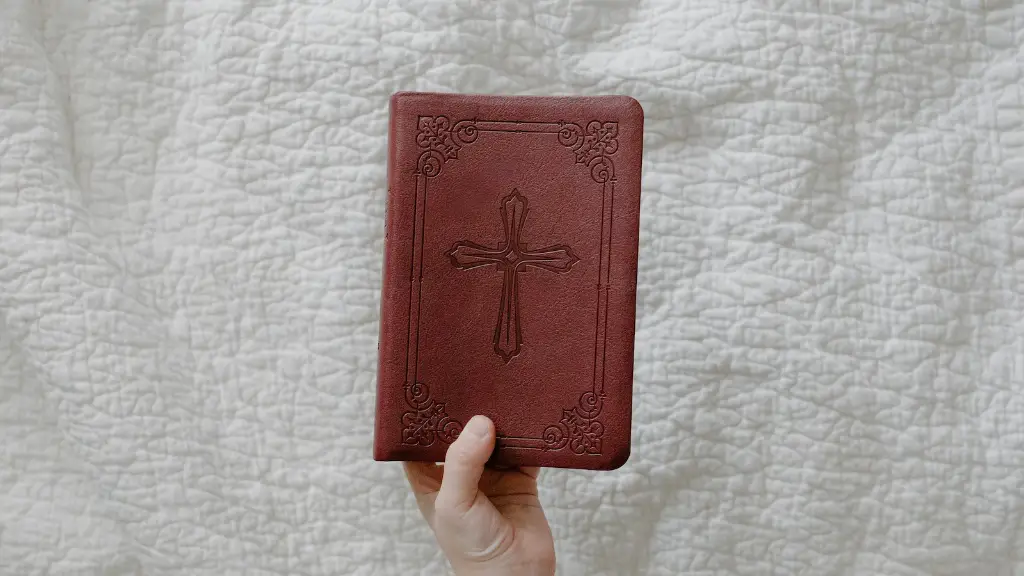What Is A Shekel In The Bible?
The word ‘Shekel’ originates from the ancient world and appears in the Bible multiple times. It is frequently used in Biblical parables, stories and when referring to money. But what is a Shekel in the Bible and what does it represent?
A Shekel is a unit of weight representing a certain amount of silver. It was the standard weight used for coins and other silver objects in the ancient world. In Jewish tradition the Shekel is a sacred unit of measure. It was used in the Old Testament of the Bible in cases involving money, justice, and religious offerings. Shekels were also used as a form of currency within Ancient Israel.
The amount of Shekels that constituted a given amount of silver fluctuated throughout the period of the Kingdom of Judah. In general, a Shekel described approximately 11.33 grams of silver. However, this rate changed as new statements were made and enforced by authorities, with the Babylonian Shekel being the most commonly accepted source for measuring value in the ancient world.
The most popular use of Shekels in the Bible is for religious offerings. God asked for a half shekel offering from the people of Israel to pay for their temple tax, as stated in Exodus 30:15. According to Exodus 38:25-26, a Shekel offering was also used for the atonement of the priestly and Levite service, as well as for things related to the Israelite testimonies, tabernacle and tent of meeting.
The use of Shekels in the Bible doubles as a legal tender, being used to record payments and debts. In Leviticus and Numbers, laws forbid any use of fraud with Shekel weights and measures, to ensure honest business and accurate value of money. In addition, several stories in the Bible that involve a transaction of money use Shekels to represent a certain amount.
Nowadays, Shekels no longer represent silver weights and are exclusively used as a form of currency. The modern Israeli currency is the New Shekel, and is used as the national tender, commercializing goods and services within the country. Also, historically, ancient Shekels were also used as religious offerings and according to the Bible, still hold spiritual and symbolic significance.
What Was The Symbolism Of Shekels In Ancient Israel?
In Ancient Israel, Shekels possessed both symbolic and sacred meaning. They were seen as an essential component of worship and religious offering, as God stipulated in the Old Testament that when the Israelites left Egypt, a half Shekel offering was to be given to the Levite.
Shekels were also seen as spiritually valuable objects. They were given as gifts and sacrifices to God, as mentioned in the book of Exodus, in order to show love, loyalty and praise towards him. Jewellery, vases and other objects, when crafted with gold, sometimes required the use of fractional Shekels as a form of payment.
In addition, Shekels were used as a form of legal tender to buy lands and objects. They served as a way to recognise transactions and had to be exchanged in an honest and fair manner. This is why it was forbidden in ancient Israel to make fraudulent use of Shekel weights, as mentioned in Leviticus and Numbers.
The Shekel was of utmost importance in Ancient Palestine, being an essential part of both religion and commerce. It was the fundamental unit of weight for determining currency, be it for offerings, damages, or any kind of transaction. In the Bible, God himself uses Shekels to describe money payments and advise people on their economic practices.
What Was The Importance Of A Half Shekel In The Bible?
In the Old Testament of the Bible, God instructed the people of Israel to give a half Shekel offering to the Levite in order to fund the adornment of the temple. This act had a deep spiritual and religious significance, as it demonstrated faith and solidarity with God for his works and offerings.
This half Shekel offering served as a sign of unification among the Israelite people in front of God and represented the equal worth of each Israelite in the presence of the Most High. This action was extremely relevant in establishing a connection between worshippers and the Lord in times of turbulent Israelite history.
The half Shekel offering was also important in signifying the importance of making religious or economic offerings, as advised by God. Moreover, it served as a reminder of how money did not dictate boundaries in terms of importance, regardless of wealth or social class. Everyone’s offering was of the same worth, bringing people together and representing the highest of spiritual values.
In the New Testament, Jesus suggests that money and wealth shouldn’t stop one from engaging in spiritual work, be it with offerings or charity. In this way, the actions of Old Testament religious practices form the base of New Testament spiritual teachings, thus reinforcing the importance of half Shekel offerings in the Bible.
What Is The Significance Of Shekels In The Bible Today?
Today, the Shekel continues to hold a spiritual meaning in the Bible. Shekel offerings still constitute an important practice in Judaism, where members of the faith offer money to charities or other community services as a mark of faith and hope.
In addition, the use of Shekels today as currency provides an understanding of how the value of money is malleable and ever-changing, just as it was in Biblical times. This offers a better perspective on the true value of money and how it does not define one’s worth.
The Shekel is also of relevance today in the belief of economic justice and smart investments, as stipulated by the Bible. God commands people to conduct an honest, transparent and lawful commercialization, as evident in Leviticus and Numbers. This notion is still strong today and forms the basis of most religious charities and foundations around the world.
What Are Some Controversial Issues On The Use Of Shekels In The Bible?
Although Shekels appear in the Bible as a unit of measure, their use has been highly criticized between religious and academic circles. The biggest controversy is the way in which children and women, as well as people of low social classes, are perceived and valued in the Old Testament.
In many cases that involve payments, half Shekels are suggested as the universal sum of payment. This has been named by many as a form of discrimination against children, who are allocated a minor sum for damages and/or equivalencies. This value displays a different perception of how children were seen in Ancient Israel and does not necessarily constitute to today’s standards of social and economic justice.
The same goes for the treatment of women and lower social classes. In many cases, their equivalencies to a Shekel were lower than ones from people of higher social standing. This is a major issue that has been discussed in academic and religious circles alike, questioning the true use and value of Shekels in the Bible and the deeper meaning behind them.
How Do Shekel Offerings Still Hold Significance In Today’s World?
Although Shekels have evolved in terms of legal tender, their spiritual use and symbolic relevance still hold importance. In religious circles, the half Shekel offering is still featured as core part of many religious customs and traditions.
In addition, Shekel offerings continue to represent the idea of donating to charities and funds as a form of spiritual and religious progress. Giving money to communities and funds is a sign of faith and hope, practiced today by many people of various religions around the world.
On a practical level, Shekel offerings keep the value of money in perspective and remind people of the importance of tithing, which God himself commanded to the Israelites in the Old Testament.
The true use of Shekels in the Bible is still a controversial topic, as the political and social context of Ancient Israel and its people reflects on the relevance of its money. Nevertheless, the spiritual significance of Shekels remains relevant today, as their use for religious offerings emphasize the importance of faith, solidarity, and justice even in moments of economic uncertainty.
Are Offerings Of Half Shekels Still Relevant In Modern Judaism?
When it comes to religious practice in Modern Judaism, the offering of Shekels still carries a spiritual significance. As it is seen in the Bible, God commanded the Israelites to give a half Shekel offering to the tabernacle in order to make sacred ornaments and adorn the temple, signifying the importance of giving and praise towards him.
In Modern Judaism, offerings are directed towards charitable causes, as a mark of deep faith, love and reverence towards God. Jewish believers often take inspiration from the stories of the Old Testament, where Shekel offerings were seen as a sign of generosity, understanding and unity.
Moreover, it is not just the act of taking part in offerings of a half Shekel which has important religious significance, but also the importance of keeping sure to use fair weights when measuring the amount of money being offered. The regulations stipulated in the Old Testament remind people of the significance of honesty and truthful practices, be it in terms of religious or economic context.
Therefore, just as in Biblical times, offerings are still fundamental in Modern Judaism, and should be made with a clear sense of devotion, respect and appreciation for one’s own religion and faith.
How Do Shekel Offerings Represent Similarities Between Old Testament And New Testament Teachings?
The teachings of Jesus Christ in the New Testament often resemble the practices of the Old Testament, as witnessed by his disciples in various Biblical stories. A reflection of this trait is seen in how Jesus often advocated for giving and offering, linking the Old and New Testament.
The same goes for Shekel offerings, which resurface in the Gospels of Matthew and Mark as Jesus references them in his teachings. He takes the importance of half Shekel offerings and expands it to a broad range of religious activities, making it clear that money should not be a barrier when it comes to religious affairs, but instead a representation of loyalty, dedication and faith to the Lord.
Thus, Shekel offerings serve to profoundly link the Bible’s two main sections, linking the importance of justice, donations and offering as taught in the Old Testament to the teachings on love, charity and prayer in the New Testament.
These spiritual and religious values are still relevant today, where religious offerings remain an important part of many spiritual ceremonies around the world. Shekels, and the messages behind their offerings, still reflect the importance of faith and the symbolic power of money, emphasizing the cornerstone of a meaningful and vibrant spiritual life.


